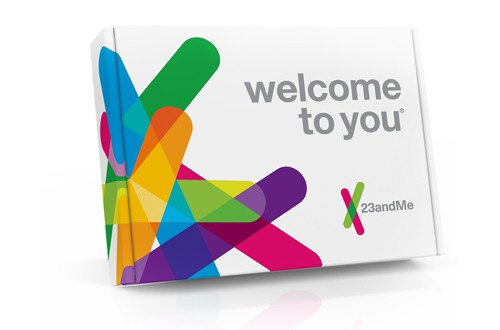
The FDA has officially approved a home genetic test kit developed by 23andMe, four years after ordering the company to stop providing the service.
The US regulator has given the go ahead to a 23andMe kit that tests for gene sequences linked to 10 diseases or conditions – including Alzheimer’s and Parkinson’s disease – in what is expected to open the door for more direct-to-consumer (DTC) genetic test approvals.
“Consumers can now have direct access to certain genetic risk information,” said the director of the FDA’s Center for Devices and Radiological Health Jeffrey Shuren, who cautioned: “it is important that people understand that genetic risk is just one piece of the bigger puzzle, it does not mean they will or won’t ultimately develop a disease.”
That potential for confusing consumers was behind the FDA’s decision in 2013 to instruct 23andMe to stop offering DNA testing kits that screened for 240 health conditions, although two years later the company was able to persuade the agency to allow it to sell a kit that would check if a healthy person carried disease genes that could be passed onto their children.
23andMe’s kits require customers to provide a saliva sample that is mailed to the company for sequencing, providing insights into their ancestry and genetic make-up. Now – for the first time – US customers will be able to access information on their own genetic health risks, something that the company has been offering in the UK and some other countries for many years.
Along with Alzheimer’s and Parkinson’s, the new Genetic Health Risk (GHR) test covers coeliac disease, alpha-1 antitrypsin deficiency, early onset primary dystonia, Factor XI deficiency, type 1 Gaucher disease, glucose-6-phosphate dehydrogenase deficiency, hereditary haemochromatosis and hereditary thrombophilia.
The FDA is still cautious about the test, emphasising that as well as the presence or absence of genetic variants there are “many factors that contribute to the development of a health condition, including environmental and lifestyle factors”.
The decision is a big win for 23andMe particularly as the regulator has agreed to exempt future 23andMe tests from premarket review. This will make it quicker and easier for the company to launch line extensions, albeit with “special controls” that the company will have to meet to demonstrate the performance of its tests. The exemption will not however include direct diagnoses of disease or include genes with immediate clinical consequences, such as cancer-related genes like BRCA.
“This is an important moment for people who want to know their genetic health risks and be more proactive about their health,” said Anne Wojcicki, CEO of Google-backed 23andMe.
“The FDA has embraced innovation and has empowered individuals by authorising direct access to this information. It is a significant step forward for 23andMe and for the adoption of personal genetics.”
Aside from direct test sales, 23andMe also taps into the genetic database afforded by its estimated two million customers with drug discovery partnerships, including tie-ups with Pfizer and Genentech.




